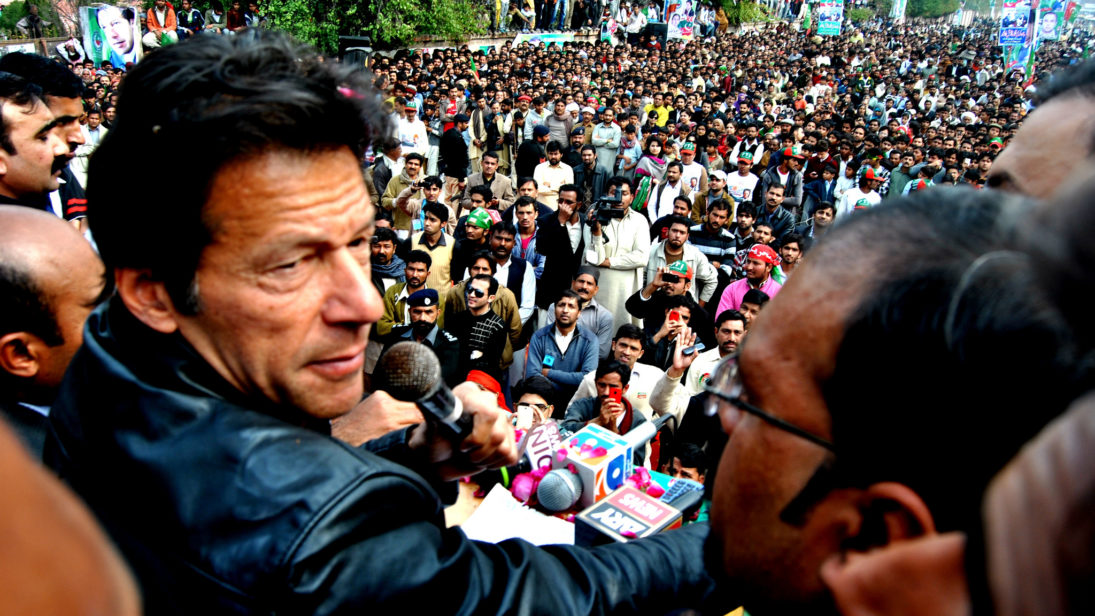
This week, ruling party Pakistan Muslim League-Nawaz (PML(N)) had a showdown with the Pakistan Tehreek-e-Insaf (PTI) after PTI Chairman Imran Khan announced plans for a lockdown of the capital, demanding that Nawaz Sharif resign as prime minister or face an independent, impartial inquiry after his name appeared in the Panama Papers leak. While Khan and the PTI portrayed the protests as an act of democracy, it is clear that Khan is using such protests as an electoral strategy, knowing that damage to Sharif’s reputation would bring electoral dividends to the PTI in the 2018 elections.
This is the second time during the current government’s tenure that the PTI has clashed with it. The first time was PTI’s four-month sit-in in Islamabad in 2014, which ended only after the terrible Army Public School tragedy.
With general elections less than two years away, both the government and opposition are planning their moves. Nawaz Sharif has reaffirmed that he will make good on his promises to the people, including improvements in electricity and power generation. On the other hand, the opposition is in tatters as the Pakistan People’s Party, which will most likely be confined to Sindh once again, unsuccessfully attempts to revive itself across the country. The PTI is certain to be re-elected in Khyber Pakhtunkhwa while the ruling PML-N is expected to sweep through Punjab and make electoral alliances with like-minded parties in the other three provinces. A recent survey suggests a 58 percent approval rating for the prime minister and a slight improvement in performance for the federal government since 2015, despite negative ratings in most governance indicators. If the recent by-elections in which the incumbent PTI lost to the PML-N are anything to go by, the calculation is that the PML-N will be endorsed in the next elections. Thus, these protests are political opportunism on the part of Imran Khan and PTI to exploit public anger against Nawaz Sharif to their favor.
The current political crisis has also ignited talk of the military stepping into Pakistan’s fragile political space, and Khan is projecting Sharif as the one responsible if it happens. Khan stated that if a third power intervenes (alluding to the military), the blame would lie with the prime minister. Since a leaked news report cited an alleged confrontation between the politicians and the military, the information minister has resigned, and relations between the civilian and military establishments have touched a new a low.
While opposition protests are essential for the health of a democracy, calls for the prime minister’s resignation are detrimental, and democratization in Pakistan will be strengthened only if the prime minister is held accountable in the courts, parliament, or general elections. There is also something to be said about the nature of the protests, which disrupted the lives of ordinary citizens. However, even though the PTI has certainly gone overboard in its opposition, the government should also be faulted for its arrogance over the terms of reference (TOR) for the judicial commission probing the Panama leaks. Now that the protest has ended, the government and opposition must come to an agreement regarding the TORs and, in the process, strengthen democracy and institutionalization in Pakistan.
***


